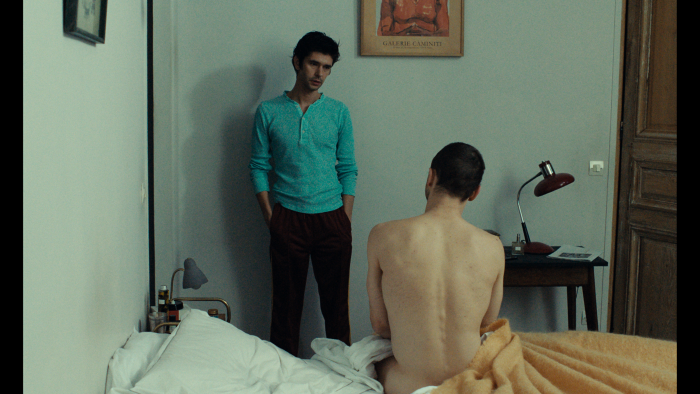It is not unusual for programmers to select a film that builds buzz because of sex. In 2021, the Swedish film Pleasure took a young woman on a lurid tour into the Los Angeles porn star factory. This year, sexuality was back in at least four movies at the Sundance Film Festival, and in the case of Brandon Cronenberg’s Infinity Pool, with a raging erection that has been severed from the film’s U.S. release. (Indiewire trumpeted in a headline, “This Year, Sundance Was All About Sex.”) And in the case of Ira Sachs’s brusquely told Passages, its libido-led story line supported one of the festival’s best films.
It should be noted that Sachs’s new movie was filmed abroad in Paris as a full-on French majority production. International co-productions (like Infinity Pool and Sebastian Silva’s raunchy Rotting in the Sun) are a sign of the times, for financing and perhaps for allowing filmmakers more freedom from the U.S. ratings system and content oversight.
Although the director has made films in Europe before (Frankie), he has certainly made himself at home in France, based on the assured storytelling here and the strong performances from his cast. In a change of pace for the filmmaker, this is his horniest movie, where artistic temperament merges with the erogenous zone.
Its title is also the name of the period piece that filmmaker Tomas (Great Freedom’s Franz Rogowski) is directing with an eagle eye. No detail is left unscathed, and he’s as dictatorial on his set as he is in his personal affairs. Celebrating the completion of his movie at a club, he casually notices that the young woman sitting next to him, Agathe (the smokey-voiced Adèle Exarchopoulos, who, in the parlance of Babylon, has “it”), has just jilted her boyfriend. Tomas, left on his own after his husband, Martin (Ben Whishaw), goes home, engages in small talk with Agathe before they hit the dance floor, where she encourages him to loosen up and feel the beat. The party then travels to her apartment, where Tomas spends the night with her, an experience he feels compelled to share, without forewarning, to Martin the following morning. Tomas is simultaneously surprised and excited as he details the encounter to his grim spouse.
Sachs immediately sets up the romantic and sexual entanglement. After Tomas abandons caution and has wild sex with Agathe in his office later that afternoon, he and Martin split up, with Martin keeping their apartment and Tomas crashing at Agatha’s. His relationship with Agathe further solidifies when she becomes pregnant.
There is something Peter Pan–ish about Tomas, who, in his late 30s, still dresses like a circuit boy from the early aughts, wearing a tight-fitting polyester midriff-bearing shirt to meet Agathe’s parents for the first time. Her folks have multiple concerns: Does Tomas plan to return to his native Germany? How involved will he be in Agathe’s and the baby’s life? Tomas bristles at the questioning of his intentions and behavior.
He wants everything his way, including sustaining relationships with both Agatha and Martin: “We can be a family.” After all, Martin had always wanted to raise a child. This prospect pops up after Tomas and Martin make up in perhaps the most explicit gay sex scene outside of an adult film. (Online, there was speculation that this was real. The director has squashed that speculation.) In one long take, the camera focuses on their shared intimacy and pleasure, with the actors filmed from behind. It’s discreet, though leaving little to the imagination.
The back-and-forth between the two lovers leads to a train wreck of a romantic triangle. One pleasure of this character-driven drama is watching the pileup from a distance and feeling smarter than the infuriating, frustrating Tomas. (Though he is controlling in every stage of his life and fails to take the temperature of any room, he’s generous and observant in the bedroom.)
This three-sided dilemma echoes John Schlesinger’s Sunday Bloody Sunday (1971), which featured a young male artist having relationships with a 30-ish woman and a 40-year-old male doctor. According to Aljean Harmetz’s review in the New York Times, its theme was “about making do.” For Sachs’s trio, each partner makes a stand for his/her self-interest: Empathy or flexibility will only go so far. Martin and Agathe are no pushovers.
It’s noteworthy that the Times review mentions, “The film’s credibility is obvious from the fact that neither audience with which I saw the film tittered or squirmed at the sexual relationship between the two men.” While watching the intensely intimate Passages, viewers are likely to feel similarly, but also grow a bit uncomfortable at turning into voyeurs.







Leave A Comment